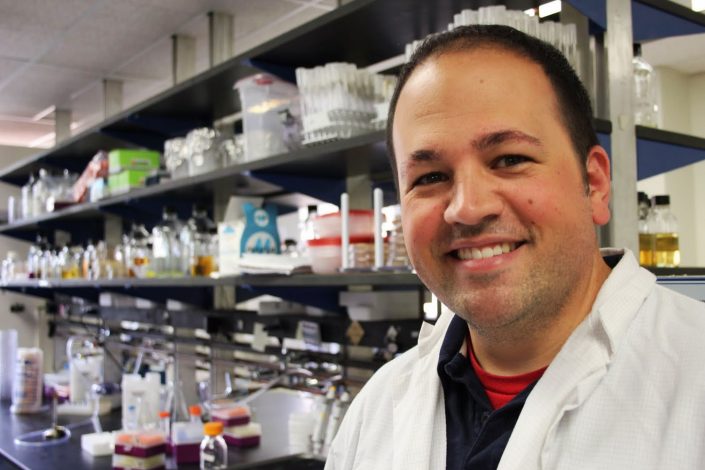A&M biologist is studying nation’s leading hospital-acquired infection

Image: College of Science
Of the millions of patients admitted to U.S. hospitals each year, nearly 250,000 will contract the dangerous bacterial infection Clostridium difficile during their stay. A Texas A&M University biologist is on a mission to understand why.
Joseph Sorg, an associate professor in the Department of Biology, is part of a collaboration buoyed by a five-year, $7.5 million grant awarded last August by the National Institutes of Allergy and Infectious Diseases – a branch of the National Institutes of Health (NIH) – to identify characteristics that predispose people to Clostridium difficile, or C. diff.
Sorg is joined in the investigation by researchers at Baylor College of Medicine, the University of Houston College of Pharmacy and UCLA. The award marks his fifth NIH grant in the past four years and the first of two he earned in 2016 alone.
“C. diff infections are the number one hospital-acquired infection,” Sorg said. “What’s really interesting is that we really don’t understand what makes people susceptible to C. diff infections. What about this disruption is allowing C. diff to come in and colonize?”
C. difficile is an intestinal bacterium that causes life-threatening diarrhea and severe inflammation of the colon. Infections occur predominantly in healthcare facilities, most often due to the improper administration of antibiotics. While various antibiotics are used to treat infections, they also can disrupt the natural order of the good bacteria that protects the gut from bad bacteria. This enables the C. difficile pathogen to colonize, leading to a devastating inflammation of the colon.
For his part, Sorg’s laboratory will collect data on how C. difficile colonizes in animal models, particularly mice, which have an exceptionable ability to recover from illness. Their aim is to identify and observe mutant strains of C. difficile to determine if they, too, can trigger intestinal damage.
The long-term goal, Sorg notes, is to lay the groundwork to prevent future infections and limit the spread of antibiotic-resistant bacteria – C. difficile and others – through the combined efforts of each institution involved in the research.
“The College of Science’s involvement in this project will actually keep us toward the forefront of what our understanding is of pathogenesis and pathogenic organisms and how they might cause disease in human hosts,” Sorg said.

